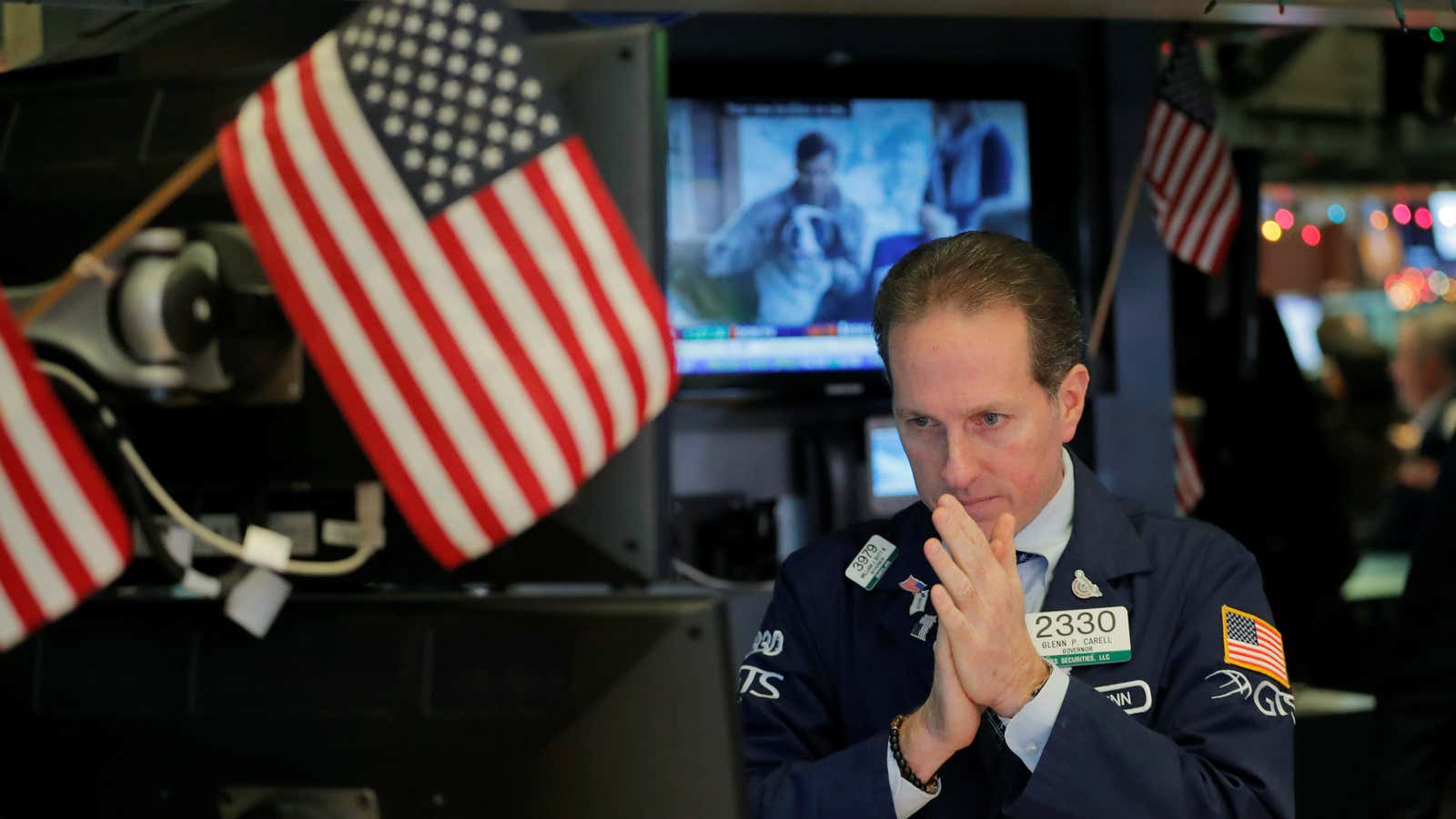On Friday, US stock markets went into a bit of a panic. The Dow dropped 666 points, its worst day since the Brexit vote in June 2016. The S&P 500 had its worst week of losses in two years. Now, the selloff is spreading around the world.
Japan’s Nikkei 225 index fell 2.55% on Monday, the biggest drop in 14 months. European stocks followed suit, with most big indexes down at least 1% this morning. As of now, the Euro Stoxx 600 and Nikkei 225 indexes have each erased all the gains they’d made so far this year.
Spooking investors are signs of inflation, coming after several years of slow consumer-price growth and even deflation in some countries. The latest signal came on Friday, when it looked like employment growth and a stronger economy were finally putting pressure on US wages: The data showed a 2.9% increase in average hourly earnings in January compared with a year earlier. In general, signs of a widespread global economic boom are fueling expectations for reflationary trends.
Inflation is bad for bondholders, who find the purchasing power of fixed-interest payments eroded over time, reducing the value of bonds. This, plus higher interest rates from the Federal Reserve and other central banks planning to tighten monetary policy, has sent bond prices down and yields higher. US 10-year Treasury yields rose to 2.84%, the highest since January 2014. At the end of last year, yields were at just 2.41%.
The selloff in bonds has hit Europe too, even though the European Central Bank isn’t raising rates, and is dialing back its bond-buying program amid the strongest eurozone economy in a decade. The German 10-year bond yield was at 0.76%, its highest since mid-2015.
These jitters are spilling over into the stock market, as traders fret about what tighter monetary conditions will mean for them. In mid-January, the Nikkei had reached its highest level in at least 20 years. Less than two weeks later, it has fallen 6%. US futures were falling again on Monday, suggesting Wall Street could be in for another rough day.
Even though stock valuations are certainly stretched, not everyone agrees that they are so overvalued as to warrant a serious selloff. Economic and earnings growth are too strong for valuations to cause an equity crash, according to JPMorgan Asset Management. That said, they warn investors to watch the speed at which bond yields move higher.
All this could make for a tricky first day on the job for the new Federal Reserve chairman, Jerome Powell. He’ll need to manage a stronger US economy, while raising interest rates and avoiding a more severe market panic about the change in financial conditions. Good luck!
